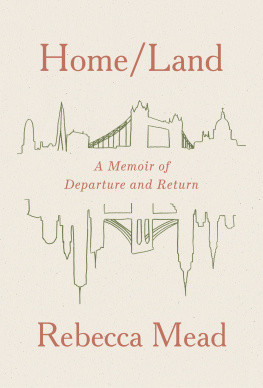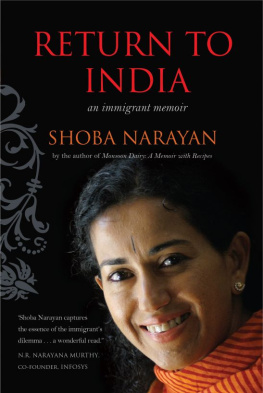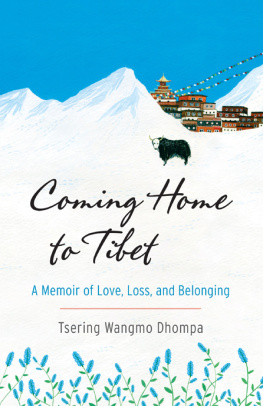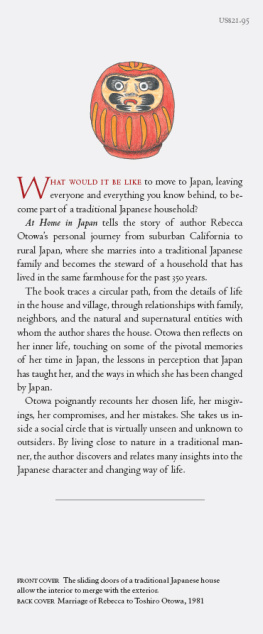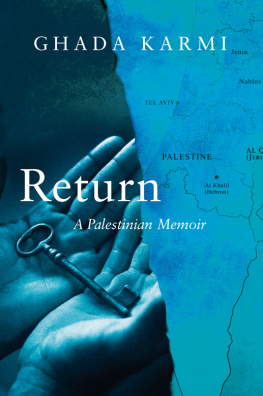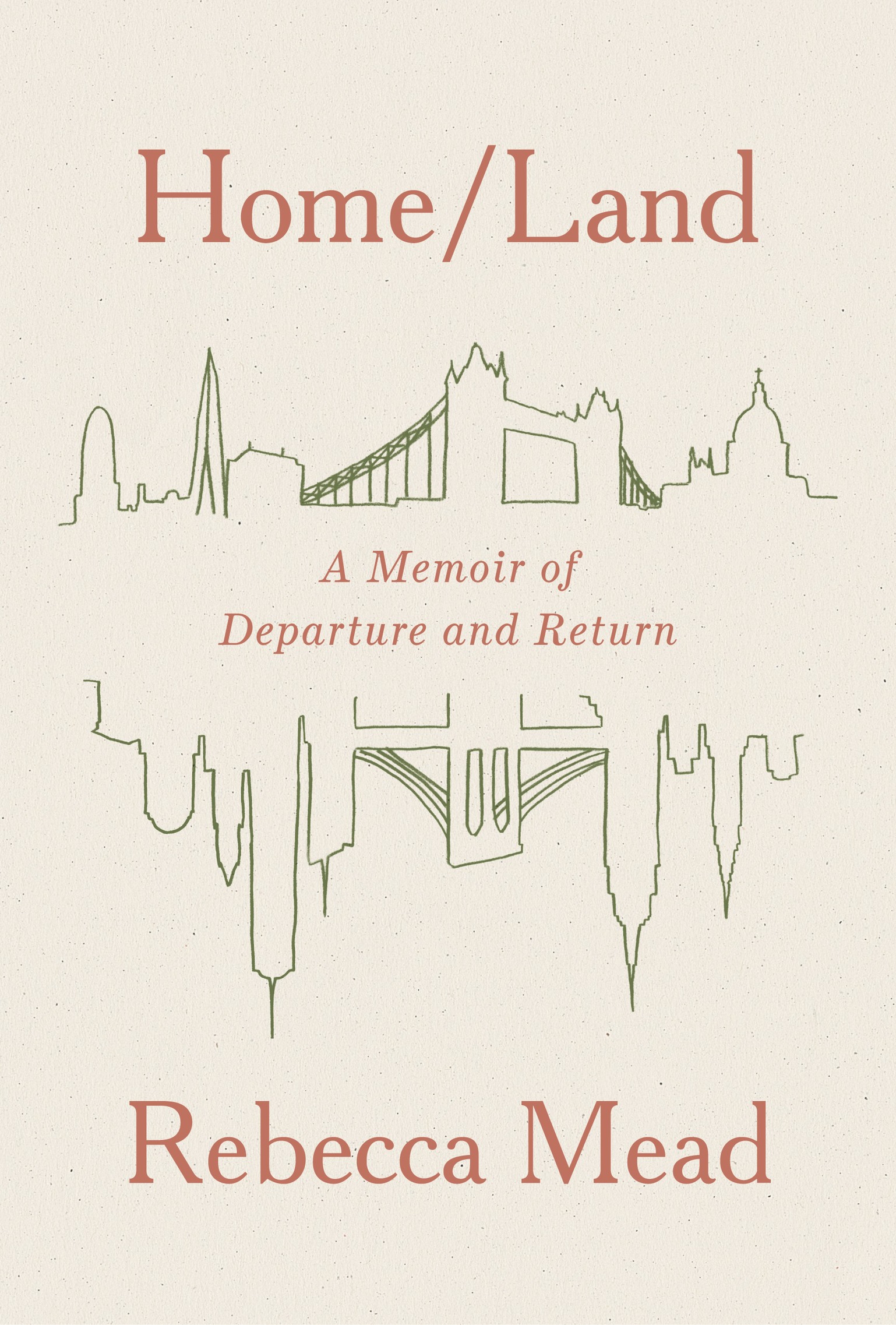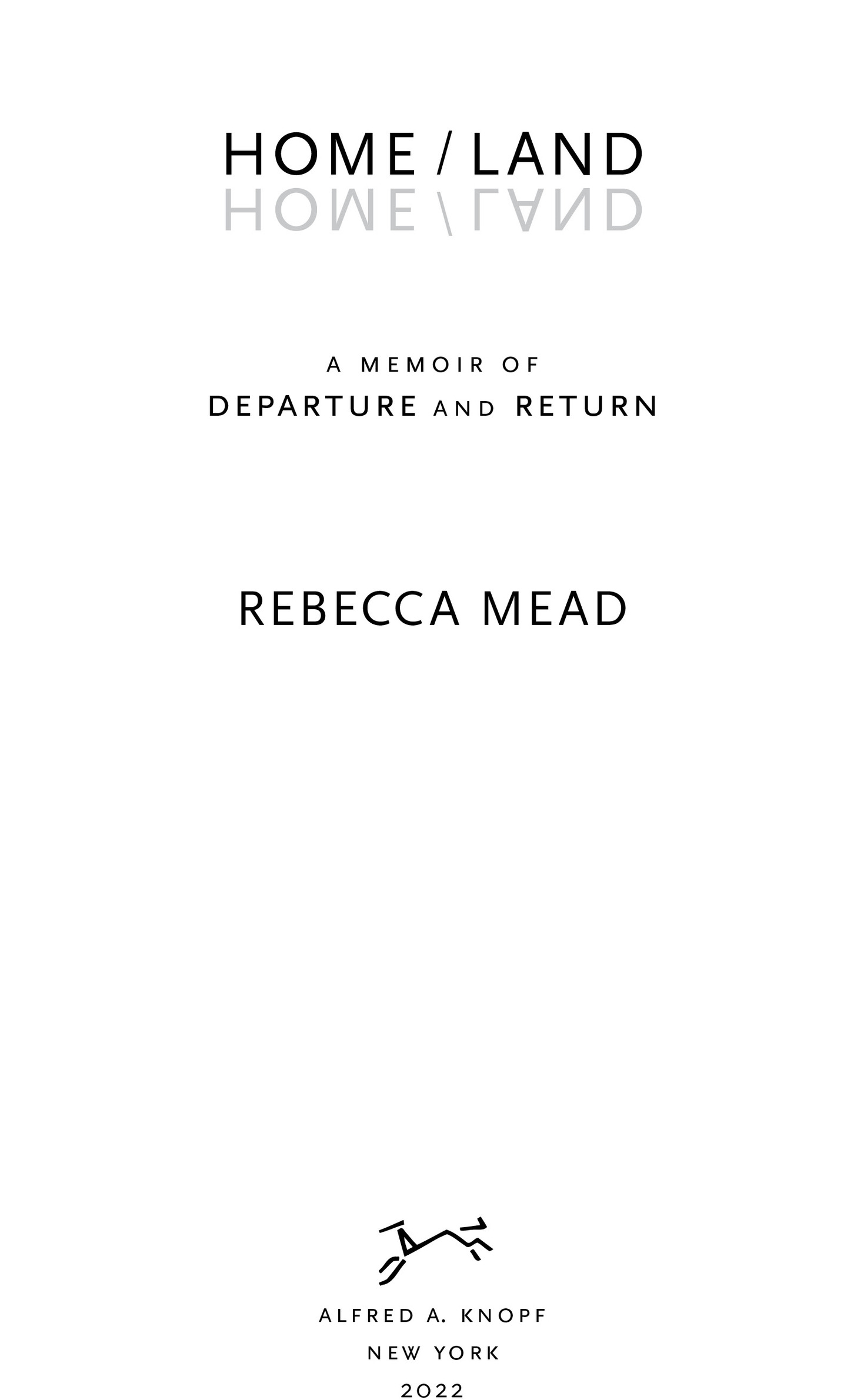Also by Rebecca Mead
My Life in Middlemarch
One Perfect Day
THIS IS A BORZOI BOOK
PUBLISHED BY ALFRED A. KNOPF
Copyright 2022 by Rebecca Mead
All rights reserved. Published in the United States by Alfred A. Knopf, a division of Penguin Random House LLC, New York, and distributed in Canada by Penguin Random House Canada Limited, Toronto.
www.aaknopf.com
Knopf, Borzoi Books, and the colophon are registered trademarks of Penguin Random House LLC.
Library of Congress Cataloging-in-Publication Data
Names: Mead, Rebecca, author.
Title: Home/Land : a memoir of departure and return / Rebecca Mead. Other titles: Homeland
Description: First edition. | New York : Alfred A. Knopf, 2022.
Identifiers: LCCN 2021025126 (print) | LCCN 2021025127 (ebook) | ISBN 9780525658719 (hardcover) | ISBN 9780525658726 (ebook)
Classification: LCC PN 5123. M 365 2022 (print) | LCC PN 5123. M 365 2022 (ebook) | DDC 070.92 [ B ]dc23
LC record available at https://lccn.loc.gov/2021025126
LC ebook record available at https://lccn.loc.gov/2021025127
Ebook ISBN9780525658726
Cover design by Linda Huang
ep_prh_6.0_139125202_c0_r0
Contents
To George and Rafael
A few years ago, when my son was in middle school, he would every so often ask me an odd question:
Whats your favorite apocalypse?
What do you mean? I would ask, puzzled and a bit impatient. The apocalypse isnt a color, or an ice cream flavor, or a band, or a book. Its not the kind of thing you have a favorite of.
If you had to choose, Rafael, my son, would say. I know you dont want any apocalypse in real life, obviously. But if you had to pick one, what would it be?
He would offer alternatives. Would I prefer an apocalypse of fire and explosions, burning forests to the ground and reducing cities to rubble? Or an epidemic: contagion spreading ruthlessly from person to person and nation to nation? Or would I choose his own personal favorite, a zombie apocalypse, hiding out in the woods with a stash of rations, building shelters from sticks, starting campfires with birch bark and twigs, on the run from legions of the living dead who march through the land with their arms outstretched before them, shredded skin hanging from their limbs, eyes rolled back in their skulls?
His own eyes would shine as he described this last permutation of the end of the world, and I would know where his favorite apocalypse was set: at summer camp. For a few years, he attended an all-boys camp in the mountains of Vermont, trading his Brooklyn bedroom for a rustic cabin overlooking a lake. There were lessons in knife skills and fire-starting skills. There was a climbing wall, strenuous hiking and a fair bit of idlingat least that was what my husband, George, and I could discern from the very occasional letters our son wrote home. One time, we received a long letter in which he confessed to having accidentally set a patch of hillside on fire when he and a couple of other campers were playing around with a contraband box of matches. What could have been a disaster was turned into a cautionary lessonthe three boys had their fire privileges revoked for the rest of the season. The envelope was covered with penciled postscripts, scrawls of mortification, though later he would turn the story into a comic anecdotethat time when some real-life danger intruded into the highly curated pseudo-risk that the camp specialized in.
The camp was intensely rustic, with no electricity in the cabins, and no flushing toilets. (A cup full of sawdust tossed down the black pit: thatll take care of things.) There were bonfires and cookouts and thrilling mass games conducted by flashlight and moonlight. Every session ended with a banquet for which inventive counselors decked the dining hall with festooned greenery and papier-mch sculptures, like a stage set, then dressed up in costumes like something from A Midsummer Nights Dream. The camp had been founded on Quaker ethics, which had morphed by the 2010s into an observance of secular, progressive principles: campers and counselors stated their pronouns upon arrival. The environment offered an antidote to the popular culture in which boys like my son were daily immersed: electronics were forbidden, and there were no movie nights or candy Fridays, as there were at some of the camps his friends went to. At the same time there was also a highly intentional intensification of the contemporary currents of liberal parenting as they were observed in the part of brownstone Brooklyn in which I lived. Lord of the Butterfliesthat was how I thought of the place. I was enchanted by so much about it; and at the same time, it drove me a little crazy.
So it was clear where my son imagined his favorite apocalypse transpiringthere, in the sun-warmed freedom and privileged primitivism of a Vermont summer. Meanwhile, he got his apocalyptic ideas, his rich array of alternative end-times, from a culture saturated with entertainment that offered the enticements of incipient destruction and violent demise. At the bookstore, hed be drawn to thick volumes with lurid cover imagesa scythe-bearing, hooded silhouette, or the close-up quadrant of a young face that was not so different from his own, with brown hair flopping over a green eye, though the skin in the illustration was pallid and gray and the terrified eye was rimmed with rust-red shadow.
When we rode the subway together, he studied the movie posters featuring cataclysmic images plastered on the platform walls: the White House in flames, helicopters circling overhead while a tattered American flag burned; a cityscape of scarred skyscrapers and crumbling bridges. There were images of square-jawed men equipped with exoskeletal body armor and guns so oversized that the combatants would surely stagger under the weight of them, like the kids who haplessly attempted to wield foot-long water pistols in summertime battles at the playground. There were images of good-looking teens advancing warily through dense forest growth, armed with improvised cudgels or lances and dressed in ragged sweatshirts, bearing camouflage-print backpacks like the one my son had insisted on buying at an Army surplus store and which he was forever filling with supplies for an impending evacuation or escape: a Nerf gun, a compass, a pocketknife, a notebook.
The posters were alarming and beguiling. There was a glamour and excitement to the various catastrophes they portendedas palpable to me as it was to my son, even as I would attempt to steer him down the subway platform to a cozier poster from a cartoon or a comedy while deflecting his persistent questions about what was represented in these action-movie images, the firepower of their weapons and the volatility of their civilizations.
Were all going to die! one of Rafaels classmates shrieked excitedly when George and I dropped him off in the playground of his middle school, a few blocks from our house, the morning after the presidential election. Our son joined the throng of children competitively comparing notes on the night beforewhod seen the shocking result coming first, whod stayed up the longest, whose parent had criedwhile George and I went to walk in circles around the hilly, verdant park at the end of our block, turning over what had transpired as we passed beneath old-growth trees. For months, Id been in a state of agitation, experiencing an anxious constriction that I knew only from the most grief-stricken moments of my lifeduring the serious illness of a loved one, or when a difficult work environment had curdled and become intolerable. The edges of my consciousness had turned shadowy. I felt as if my existence had contracted, shrunk down to a meager tunnel of survival. But I had anticipated that relief was inevitable, and that the shadows would begin to clear.

